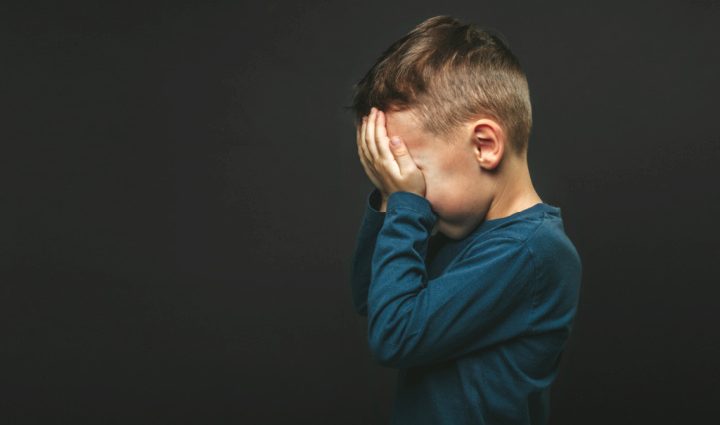Hevitra ato Anatiny
No matter how old we are, the death of a father or mother always causes great pain. Sometimes mourning drags on for months and years, turning into a serious disorder. Rehabilitation psychiatrist David Sack talks about the help you need to get back to a fulfilling life.
I was orphaned at 52. Despite my adult age and professional experience, the death of my father turned my life upside down. They say it’s like losing a part of yourself. But I had the feeling that the anchor of my self-identity had been cut off.
Shock, numbness, denial, anger, sadness, and despair are the range of emotions people go through when they lose a loved one. These feelings do not leave us for many more months. For many, they appear without a certain sequence, losing their sharpness over time. But my personal fog did not dissipate for more than half a year.
The process of mourning takes time, and those around us sometimes show impatience — they want us to get better as soon as possible. But someone continues to acutely experience these feelings for many years after the loss. This ongoing mourning can have cognitive, social, cultural, and spiritual implications.
Grief, addiction and mental breakdown
Research shows that the loss of a parent can increase the risk of long-term emotional and mental problems such as depression, anxiety, and drug addiction.
This is especially true in situations where a person does not receive full support during the period of bereavement and does not find full-fledged adoptive parents if relatives die too early. The death of a father or mother in childhood significantly increases the chances of developing mental health problems. Approximately one in 20 children under the age of 15 is affected by the loss of one or both parents.
Sons who have lost their fathers have a harder time dealing with the loss than daughters, and women have a harder time coping with the death of their mothers.
Another decisive factor in the occurrence of such consequences is the degree of closeness of the child with the deceased parent and the scale of the impact of the tragic event on his entire future life. And this does not mean at all that people are easier to experience the loss of someone with whom they were less close. I can say with confidence that in this case, the experience of loss can be even deeper.
The long-term consequences of losing a parent have been repeatedly investigated. It turned out that this affects both mental and physical health, with the latter more often manifested in men. In addition, sons who have lost their fathers are more difficult to experience the loss than daughters, and women have a harder time reconciling with the death of their mothers.
It’s time to ask for help
Research on the theory of loss has helped to understand how to help people traumatized by the death of their parents. It is very important to focus on a person’s personal resources and his ability to self-heal. It is important that significant relatives and family members provide him with comprehensive assistance. If a person is experiencing complicated grief that lasts long after the death of a loved one, additional measures and mental health screening may be needed.
Each of us copes with the loss of loved ones in our own way and at our own pace, and it can be very difficult to recognize at what stage sadness turns into a chronic complex disorder. Such a prolonged form — pathological grief — is usually accompanied by prolonged painful experiences, and it seems that a person is not able to accept the loss and move on even months and years after the death of a loved one.
Path of rehabilitation
The stages of recovery after the death of a parent include an important stage in which we allow ourselves to experience the pain of the loss. This helps us gradually begin to realize what happened and move forward. As we heal, we regain the ability to enjoy our relationships with others. But if we continue to obsess and overreact to any reminders of the past, professional help is needed.
Communication with a specialist is supportive and helps to talk openly about sadness, frustration or anger, learns to cope with these feelings and just allow them to manifest. Family counseling may also be helpful in this situation.
It becomes easier for us to live and let go of grief if we do not hide feelings, thoughts and memories.
The death of a parent can bring back old pain and resentment and have a significant impact on family system processes. A family therapist helps to separate old and new conflicts, shows constructive ways to eliminate them and improve relationships. You can also find an appropriate support group that can help you feel less withdrawn from your grief.
Protracted grief quite often leads to «self-medication» with the help of alcohol or drugs. In this case, both problems must be solved simultaneously and require double rehabilitation in the respective centers and clinics.
And finally, taking care of yourself is another important part of recovery. It becomes easier for us to live and let go of grief if we do not hide feelings, thoughts and memories. Healthy eating, proper sleep, exercise and enough time to mourn and rest are what everyone needs in such a situation. We need to learn to be patient with ourselves and those around us who are grieving. It’s a very personal journey, but you shouldn’t walk it alone.
The author is David Sack, a psychiatrist, chief physician of a network of rehabilitation centers for alcoholics and drug addicts.










